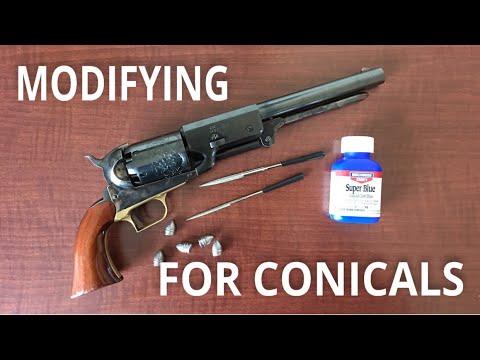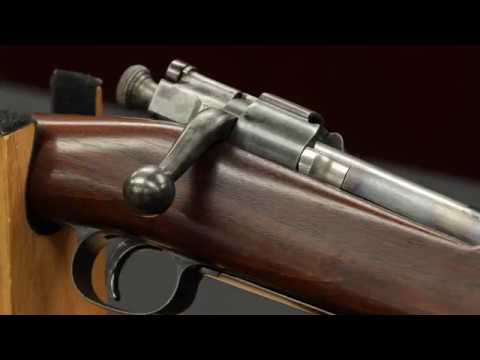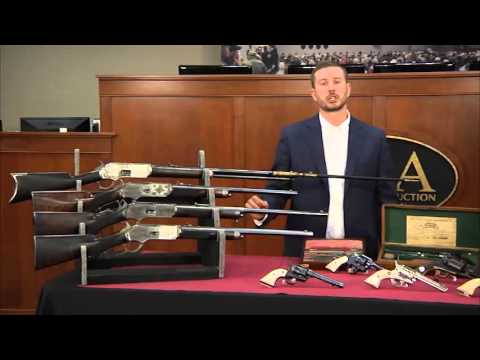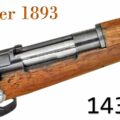http://www.patreon.com/ForgottenWeapons
https://www.floatplane.com/channel/ForgottenWeapons/home
Cool Forgotten Weapons merch! http://shop.forgottenweapons.com
00:00 – Introduction
00:38 – Limitations of this video
01:22 – 9mm Luger
05:22 – 9mm Largo
07:01 – 9mm Browning Long
10:11 – .380 Auto/9x17mm
12:08 – 9mm Mauser Export
13:38 – 9mm Steyr
15:50 – 9x18mm Ultra/Police
18:08 – 9x18mm Makarov
Why do we have so many different 9mm cartridges, and what are they all? Why are 9mm Steyr and 9mm Largo virtually identical and yet different, while 9×18 Ultra and 9×18 Makarov are completely different? Well, today we will explore the wide word of 9mm cartridges. Starting with the origins of 9mm Parabellum as the necked-up coin of Georg Luger’s 7.65mm Parabellum through the other 9mm rounds developed in the halcyon days of automatic pistol development and then a few of the more modern additions.
In particular, we will cover:
9mm Parabellum, aka 9mm Para, 9mm Luger, 9x19mm, 9mm NATO. The first of these 9mm cartridges, it was developed as a necked-up version of 7.65x21mm for the Luger pistol. It has an excellent balance of size, pressure, and ballistics and has become the most common pistol cartridge in use to the day. Available now in a huge variety of bullet weight, shape, and velocities.
9mm Bergmann, aka 9mm Bergmann-Bayard, 9mm Largo, 9x23mm. Originally developed for the Bergmann Mars pistol in 1903, it was used by Denmark and Spain among others.
9mm Browning Long, aka 9x20mmSR. A mostly unsuccessful cartridge, this is the larger sibling of John Browning’s 6.35mm and 7.65mm cartridges (25 ACP and 32 ACP). It used a semi-rimmed case for headspacing, and was adopted primarily by Sweden in the Model 1907 Browning pistol and the Model 1937 Suomi SMG.
9mm Browning Short, aka .380 ACP, 9mm Kurz, 9mm Corto, 9x17mm. Designed by Browning in 1908, this was a way to offer a larger bullet in a variety of pistol originally chambered for the .32 ACP cartridge. It is the shortest of the rounds we will look at today and also the weakest, specifically intended for small civilian pistols.
9×25 Mauser Export. A very short-lived cartridge, this was intended to be a more powerful option for the C96 Mauser pistol, but it found no market interest. It was revived by SIG in a submachine gun design of the 1930s, and adopted by Hungary for its own submachine guns, but found no further use (and virtually no handgun use).
9mm Steyr, aka 9×23 (again). Ditinct from the 9mm Largo/9mm Bergmann cartridge, but virtually identically to it dimensionally. The 9mm Steyr was created for the Model 1912 Steyr-Hahn pistol. It differs from the Bergmann around primarily in using a slightly lighter bullet.
9mm Ultra, aka 9mm Police, 9x18mm. Originally designed as an attempt to shoehorn a more powerful cartridge into the Walther PP/PPK platform, it proved too powerful for the purpose. Walther designed a rotating-barrel pistol to use it in 1936, but the project never got beyond prototypes. It was resurrected in the early 1970s for essentially the same type of pistols, but again failed to get enough commercial traction to survive.
9mm Makarov, aka 9x18mm. While also 9x18mm dimensionally, the Soviet Makarov cartridge actually uses a 9.2mm (0.364 inch) bullet. It was deliberately chosen to prevent any potential use in western 9mm firearms. Ballistically, it is similar to the .380 ACP and 9×18 Ultra, intended for use in a simple blowback action.
Contact:
Forgotten Weapons
6281 N. Oracle 36270
Tucson, AZ 85740

At Forgotten Weapons I think the most interesting guns out there are the most obscure ones. I try to search out experimental and prototype weapons and show you how they work, in addition to more conventional guns that you may not have heard of before. You’re much more likely to find a video on the Cei Rigotti or Webley-Fosbery here than an AR or Glock. So, do you want to learn about something new today? Then stick around!





